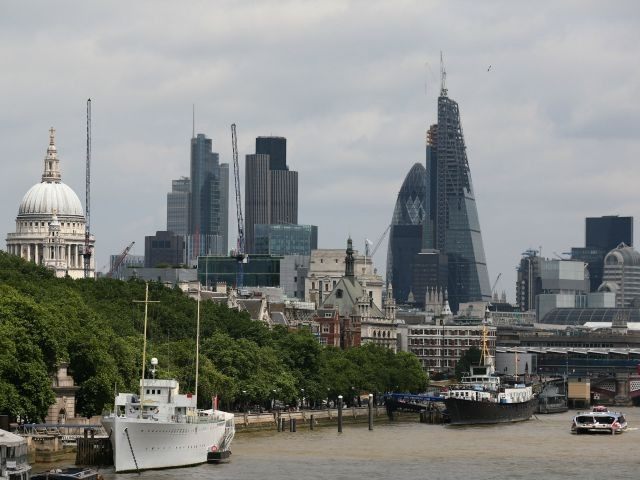Contrary to much scaremongering from European Union (EU) funded trade bodies, a leading economics consultancy says Britain’s financial services sector will remain a world-beater even if voters choose to leave the EU, the so-called Brexit option.
The Brexit research comes from Capital Economics, an independent economics consultancy led by one of the City of London’s best-known economists, Roger Bootle. The consultancy’s Chief UK Economist, Vicky Redwood, says analysis suggests the short-term costs impact on the Square Mile may be outweighed by longer-term benefits.
Redwood’s research note does not come without warnings. For example, she says that up to half of Britain’s financial services exports to the EU, worth £19.4bn in 2013, could be at risk in the short term. This is because in negotiating Brexit terms, Britain risks surrendering “passporting” rights which allow UK-based businesses to sell to EU consumers across the continent.
Redwood says it is “wrong to assume that leaving the EU would result in less regulation”, but her conclusion is a positive one for Brexit supporters. It says:
“A British exit from the EU would probably hurt the City in the short term, but it would not spell disaster.
“The City’s competitive advantage is founded on more than just unfettered access to the single market. And an EU exit would enable the UK to broker trade deals with emerging markets that could pay dividends for the financial services sector in the long run…
“The City possesses intrinsic advantages, including the UK’s legal system, the English language, a convenient timezone, openness to immigrants, a large pool of skilled labour and a critical mass of expertise in support services such as accounting and law.”
Redwood sees a liberated Square Mile, freed from EU constraints and creating lucrative opportunities as a result of new bilateral trade agreements between Britain and emerging economies beyond the EU.
Further evidence of emerging Eurosceptic sentiment in the business sector can be found in a British Chambers of Commerce survey of more than 2,000 business leaders.
The survey shows that while 63 per cent would vote to stay in the EU if the referendum was held now, as many as half could be persuaded to change their mind after the conclusion of British negotiations on reformed relationship.
The survey also shows that if the UK were to vote for Brexit, 40 per cent of business leaders currently expect this would have a negative impact on their overall growth strategy but another 40 per cent expect it would have no impact. In addition, 14 per cent of business leaders expect it would have a positive impact.
When asked about the impact of Brexit on their businesses, 46 per cent of business leaders expect either no impact or a positive impact and the same amount expect negative outcomes.
56 per cent of those polled say the Prime Minister should focus his negotiations on greater powers for the UK parliament to block proposed EU legislation, 41 per cent want the UK to opt out from ‘ever closer union’ and 40 per cent want greater UK control over migration.
John Longworth, Director General of the British Chambers of Commerce, said:
“Businesspeople are demanding a real shift in the balance of power between the UK and Brussels in any deal. Clear safeguards for the UK, and greater decision-making here at home, are at the top of their priority list.”

COMMENTS
Please let us know if you're having issues with commenting.